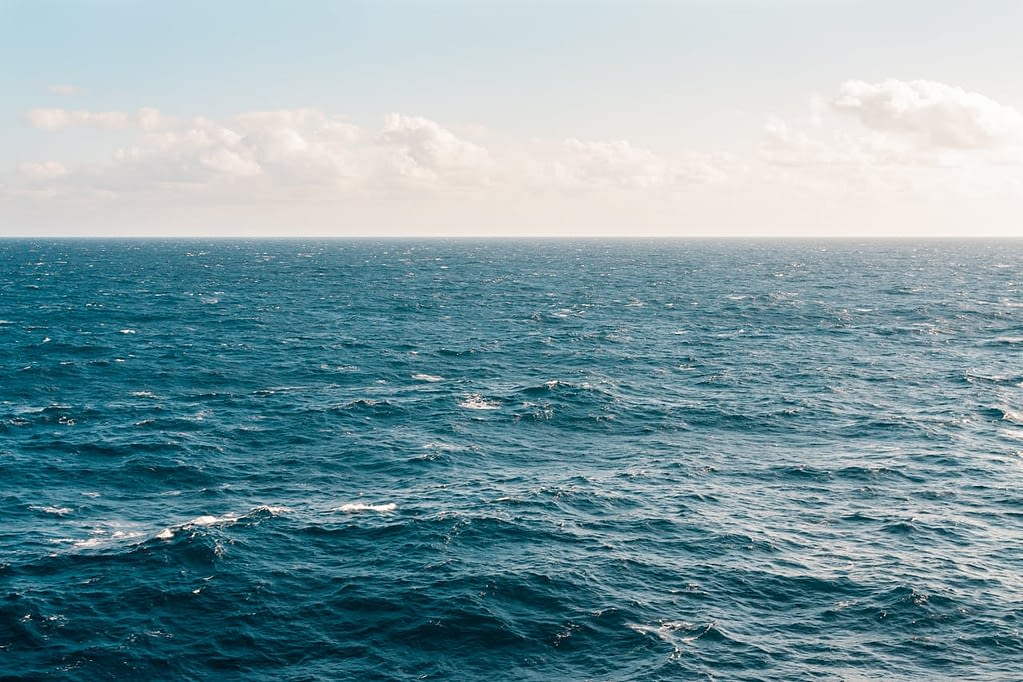Why Are We Drawn to The Sea?
From the rhythmic sound of waves crashing against the shore to the expansive horizon that stretches infinitely, the sea holds an undeniable allure. As a race, we have been captivated by bodies of water for centuries, seeking solace, adventure, and inspiration from their depths. But what is it about the ocean that draws us in so powerfully? Why do we find such profound peace and rejuvenation when we are near water? This blog post explores the deep connection between humans and the sea, delving into the psychological and therapeutic benefits that water offers to our state of mind.
The Psychological Pull of Water
One theory that explains our attraction to the ocean is the biophilia hypothesis, proposed by biologist Edward O. Wilson. This hypothesis suggests that humans have an innate affinity for nature and natural environments. Water, being a fundamental element of nature, taps into this desire. The sight and sound of water can evoke a sense of connection to the natural world, reminding us of our origins and fostering a sense of belonging and peace.

Marine biologist Wallace J. Nichols introduced the concept of the “Blue Mind“. This refers to the meditative state that people enter when they are in, on, or near water. This theory suggests that water can induce a mildly meditative state. This is characterized by calm, peacefulness, unity, and a sense of general happiness and satisfaction with life at the moment. The color blue itself is often associated with tranquility and calmness, which may explain why looking at a vast expanse of water can be so soothing.
Therapeutic Effects on Mental Health
Stress Reduction
One of the most immediate benefits of being near the ocean is stress reduction. Studies have shown that the sound of waves can alter wave patterns in the brain, lulling you into a deeply relaxed state. This is why the ocean is a popular backdrop for meditation and relaxation practices. The consistent and rhythmic sound of waves creates a sense of stability and predictability. This can be incredibly soothing in our often chaotic lives.
Boosting Creativity and Problem Solving
Water also profoundly impacts our cognitive functions. The relaxed, meditative state that water induces is known to enhance creativity and improve problem-solving skills. Being near water can help clear our minds, allowing us to think more freely and creatively. This is why so many writers, artists, and thinkers retreat to coastal areas to find inspiration.
Improving Mood and Emotional Well-being
The sea’s therapeutic effects extend to improving mood and emotional well-being. Exposure to natural environments, including bodies of water, has been linked to increased levels of serotonin, the neurotransmitter that contributes to feelings of happiness and well-being. The sense of awe and wonder that the ocean inspires can also lead to a greater sense of contentment and fulfillment.
The Role of Water in Clearing Mental Clutter
In today’s fast-paced, digitally-driven world, various sources—phones, computers, advertisements, and more—constantly stimulate our minds. This relentless influx of information can lead to mental fatigue and stress. The ocean offers a stark contrast to this overstimulation. The vast, open expanse of water provides a minimalist landscape that helps to clear the mind. The simplicity and tranquility of the ocean allow our brains to take a break from processing excessive information. This creates space for mental clarity and relaxation.

Color psychology significantly influences how we perceive and are affected by our environment. The color blue, dominating bodies of water, calms the human mind. People often associate blue with feelings of calmness, serenity, and stability. It can slow down the heart rate and reduce anxiety, making it an ideal backdrop for relaxation and introspection. This calming effect of the color blue contributes to the overall sense of peace that we experience when we are near the ocean.
The Physical Benefits of Being Near Water
Enhanced Physical Health—Beyond the mental benefits, being near water can also positively impact physical health. The negative ions present in sea air can help absorb oxygen and balance serotonin levels. This can lead to improved mood and decreased stress. Furthermore, swimming in the ocean provides a full-body workout, improving cardiovascular health, muscle strength, and flexibility.
Healing Properties—Saltwater is known for its healing properties. It can help cleanse wounds, reduce inflammation, and promote skin health. The minerals in seawater, such as magnesium, potassium, and iodine, can have therapeutic effects, contributing to overall physical well-being.
Our Ancient Connection to Water
Evolutionary Perspective – Our deep connection to water can also be traced back to our evolutionary history. Early humans settled near rivers, lakes, and oceans because these areas provided essential resources such as food, water, and transportation. This historical reliance on water sources for survival has ingrained a deep-seated affinity for water in our DNA.
Spiritual and Cultural Significance – Throughout history, water has held significant spiritual and cultural meanings. Many cultures consider water bodies sacred and incorporate them into religious and spiritual practices. Water’s cleansing and purifying qualities are often symbolized in rituals and ceremonies, underscoring its importance to our well-being and spirituality.
Practical tips to harness the benefits of water

Exercise in any setting can improve our physical and mental health on a number of different levels and can be an excellent way of reducing stress. But you may get even more benefits from your exercise by getting out of the gym and taking a jog by the ocean or a swim in the lake instead.
This can potentially give you more of a mental boost than exercising in a crowded, hectic gym environment with TVs in front of you and people all around.
While not everyone has the luxury of living near the ocean, there are several ways to incorporate the benefits of water into daily life. Consider visiting local lakes, rivers, or even canals and fountains in urban settings. Aquariums and water features in your home or workplace can also provide a calming presence.
Engaging in water-based activities such as swimming, kayaking, or even taking regular baths can help you tap into water’s therapeutic effects. These activities promote physical health and provide mental and emotional relaxation.
Summary
Our attraction to the ocean and other bodies of water is deeply rooted in both our biology and our history. The psychological and therapeutic benefits of being near water are profound. Offering stress reduction, enhanced creativity, improved mood, and numerous physical health benefits. The vastness of water helps clear our minds from overstimulation. Whilst the calming influence of the color blue enhances our sense of tranquility. Whether it’s the rhythmic sound of waves or the expansive blue horizon, the ocean has a unique ability to soothe and rejuvenate our minds and bodies. By understanding and embracing our connection to water, we can enhance our well-being and find greater peace and fulfillment in our lives.







